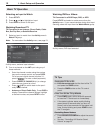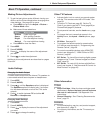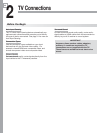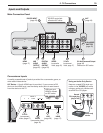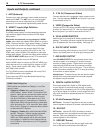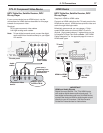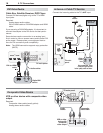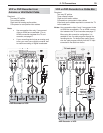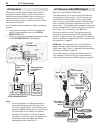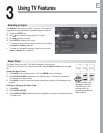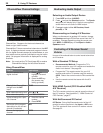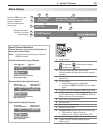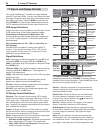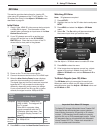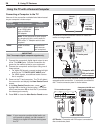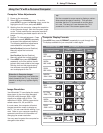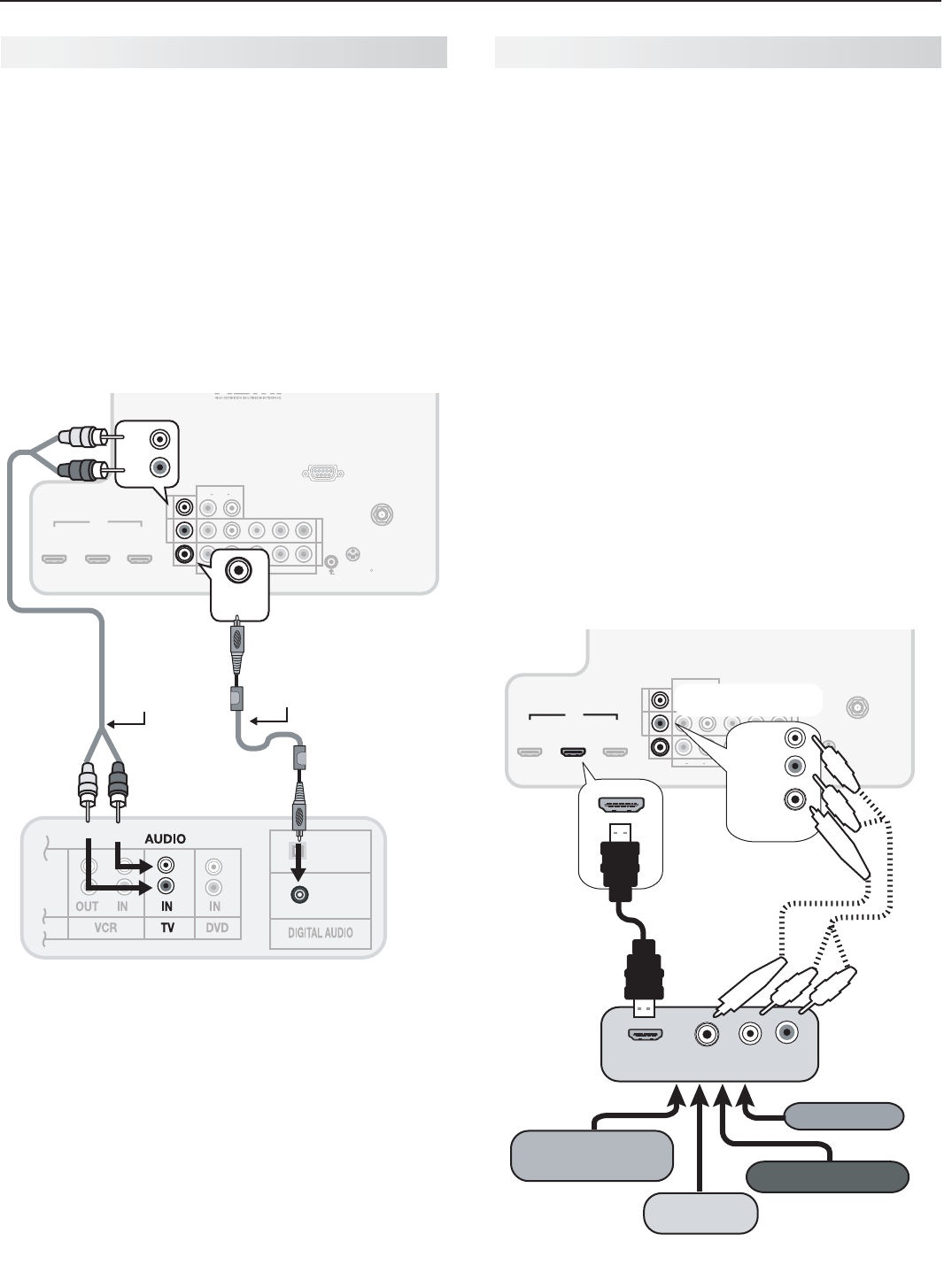
20 2. TV Connections
A/V Receiver
Most setups require either a digital audio cable or
analog stereo audio cables. To send audio from TV
channels received on the
ANT
input or devices con-
nected directly to the TV, you must use one of the
connections shown below. Usually, only one of these
connections is required.
The TV makes all audio available in digital and analog
formats:
Analog audio coming into the TV is available as •
output in digital stereo format on the
DIGITAL
AUDIO OUTPUT
jack.
Digital incoming audio is available as analog output •
on the
AVR AUDIO OUTPUT L
and
R
jacks.
1
2
3
HDMI
AVR
AUDIO
OUTPUT
L
R
Pb
Y/ VIDEO
Pr
Pb
Pr
INPUT 2
INPUT 1
DIGITAL
AUDIO
OUTPUT
DVI/PC
AUDIO
(480i / 480p / 720p / 1080i)
L
R
L
R
INPUT
AUDIO
Y/ VIDEO
3D
GLASSES
EMITTER
ANT
RS-232C
IR-
NetCommand
Output
R
L
R
DIGITAL
AUDIO
OUTPUT
COAXIAL
INPUT
OPTICAL
INPUT
COAXIAL
INPUT
L
R
AVR
AUDIO
OUTPUT
DIGITAL
AUDIO
OUTPUT
Digital coaxial cable
(for a digital A/V
receiver)
Stereo analog
cables
(for an analog
A/V receiver)
TV main panel
A/V receiver back panel
Note:
On rare occasions, an HDMI signal may be •
copy-restricted and cannot be output from
the TV as a digital signal. To hear these copy-
protected signals through the A/V receiver, use
the connection for an analog A/V receiver.
Check the A/V receiver’s Owner’s Guide for •
information concerning use of the digital input
and switching between digital sound and
analog stereo sound from the TV.
A/V Receiver with HDMI Output
Required: One HDMI-to-HDMI cable
This option allows you to view content from devices
connected to an A/V receiver. The A/V receiver can
send audio and video to the TV over a single HDMI
cable. You can use an HDMI connection as described
here in addition to an audio connection from the TV’s
audio output. The optional audio connection allows you
to hear, through the A/V receiver, devices connected to
the TV only, e.g., an antenna on the
ANT
input.
You may be able to use the TV’s remote control (in
TV
mode) to operate connected CEC-enabled HDMI
devices. Experiment with your equipment to determine
which functions are available to the TV’s remote control.
See Appendix C, page 67.
837 Series:
This setup allows you to use NetCom-
mand-controlled audio and video switching over the
HDMI cable. See “Case 3: Automatic Audio and Video
Switching via HDMI” on page 55.
To use NetCommand to supplement HDMI control of a
CEC-enabled A/V receiver, note the recommendations
under “More About Using an HDMI Connection,” page 55.
1
2
3
HDMI
AVR
AUDIO
OUTPUT
L
R
Pb
Y/ VIDEO
Pr
Pb
Pr
INPUT 2
INPUT 1
DIGITAL
AUDIO
OUTPUT
DVI/PC
AUDIO
(480i / 480p / 720p / 1080i)
L
R
L
R
INPUT
AUDIO
Y/ VIDEO
3D
GLASSES
EMITTER
ANT
IR-
NetCommand
Output
R
L
R
DIGITAL
AUDIO
OUTPUT
HDMI OUT
DIGITAL
AUDIO
L R
High-definition
DVD player
DVD player
Cable box
VCR
1
2
3
HDMI
AVR
AUDIO
OUTPUT
DIGITAL
AUDIO
OUTPUT
L
R
A/V receiver
with HDMI
output
Optional analog or
digital audio
connection
TV main panel



